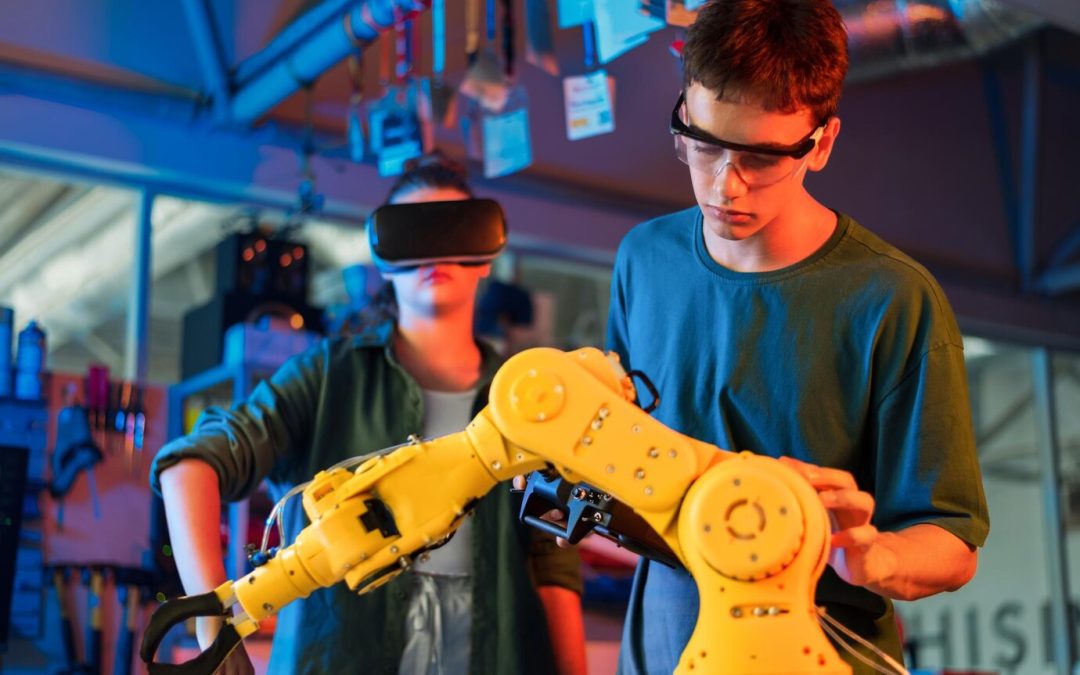From rudimentary mechanical tools to today’s advanced AI-driven robots, the evolution of robotics is nothing short of remarkable. Over decades, innovations have transformed robots into indispensable assets across industries. With capabilities ranging from precision assembly to intricate problem-solving, robotics has become a cornerstone of technological advancement, laying the foundation for automation’s bright future.
Transforming Industries Through Robotics
Robotics is redefining industries, enhancing efficiency, and unlocking new possibilities. In manufacturing, robots streamline production lines, ensuring consistency and speed. In healthcare, robotic systems assist in surgeries, improving accuracy and patient outcomes. Even agriculture is witnessing a revolution with automated harvesting and precision farming tools. By adapting robotics innovations, industries can achieve unprecedented levels of productivity and quality.
AI and Machine Learning in Robotics
Artificial Intelligence (AI) and Machine Learning (ML) are the driving forces behind modern robotics innovations. Robots equipped with AI can learn, adapt, and perform tasks with minimal human intervention. From autonomous vehicles navigating city streets to warehouse robots optimizing logistics, AI-powered systems are not only efficient but also increasingly intelligent, shaping the future of automation.
Collaborative Robots: The Future of Work
Collaborative robots, or cobots, are changing the dynamics of the workplace. Designed to work alongside humans, these robots are enhancing productivity while ensuring safety. Unlike traditional robots confined to isolated tasks, cobots are versatile and user-friendly, making them ideal for small businesses and large enterprises alike. This innovation fosters a harmonious relationship between human workers and automation.
Challenges and Opportunities in Robotics Innovations
While robotics offers immense potential, challenges like cost, ethical considerations, and workforce adaptation remain. However, these challenges also present opportunities for further innovation. By addressing these concerns, robotics innovators can create solutions that are accessible, sustainable, and socially responsible. As businesses and governments invest in research and development, the robotics revolution is poised to drive global progress.
Conclusion:
Robotics innovations are not just reshaping industries—they are redefining how we envision the future. By embracing these advancements, businesses and individuals alike can unlock new possibilities, paving the way for a smarter, more efficient world.

